Deer Hunting
COVID-19 Found in Utah Mule Deer
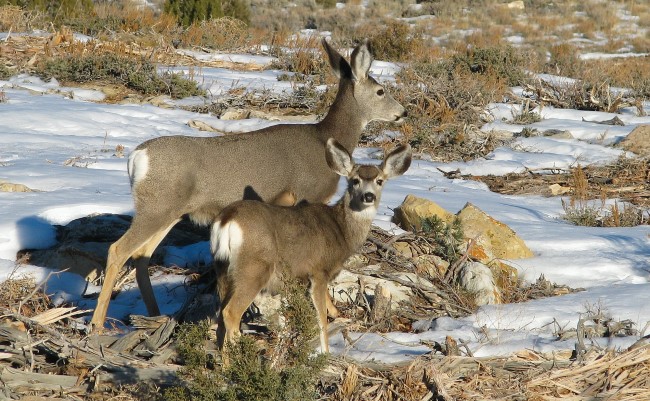
Well, there’s your problem. They’re not wearing masks!
While COVID-19 was confirmed in white-tailed deer in parts of the U.S. last year, the virus was recently confirmed in Utah mule deer for the first time after the Utah Division of Wildlife Resources submitted samples taken from deer during winter health assessments.
The U.S. Department of Agriculture’s Animal and Plant Health Inspection Service has been collaborating on a research study to test various wildlife species for the presence of SARS-CoV-2 (COVID-19). As part of the study, DWR biologists collected nasal swab samples and blood samples from deer during the annual helicopter captures where biologists perform a health check and place GPS collars on the animals. From November to December, samples were taken from roughly 280 deer statewide and were sent to two USDA labs in other states for testing.
On March 22, the APHIS’ National Veterinary Services Lab in Ames, Iowa confirmed a case of the SARS-CoV-2 delta variant in one of the samples submitted from a female mule deer in Morgan County. Only one deer tested positive for the virus from the nasal samples, but several other Utah deer had the antibodies in their blood samples, indicating the virus had been in the deer population prior to the capture.
“While it is confirmed that mule deer are susceptible to this virus, the deer that we took samples from did not show any clinical signs of the illness, and there isn’t any evidence that it is killing mule deer,” DWR State Veterinarian Ginger Stout said. “There is also no evidence that animals, including mule deer, are playing a significant role in spreading SARS-CoV-2 to people, and the available research suggests that the likelihood of getting COVID-19 from an animal is quite low.”
It is unclear how the mule deer was exposed to the delta variant of COVID-19. It is possible it may have been exposed through people, other deer or another animal species.
There is no evidence that people can get COVID-19 by eating meat from an infected animal. However, hunters should always practice good food hygiene when processing harvested wildlife by doing the following:
- Don’t allow contact between wildlife and domestic animals, including pets and hunting dogs.
- Do not harvest animals that appear sick or are found already dead.
- Keep game meat clean, and cool the meat down as soon as possible after harvesting the animal.
- Avoid cutting through the animal’s backbone and spinal tissues, and do not eat the brains of wildlife.
- When handling and cleaning game meat, wear rubber or disposable gloves. Don’t eat, drink or smoke while handling the meat.
- When you are finished handling and cleaning the meat, wash your hands thoroughly with soap and water.
-

 Hunting2 months ago
Hunting2 months agoDrain the Swamp: Corruption Scandal at Washington State’s Fish & Wildlife
-

 Adventure3 weeks ago
Adventure3 weeks agoDoes the “Big Beautiful Bill” Have a Public-Lands Wart?
-
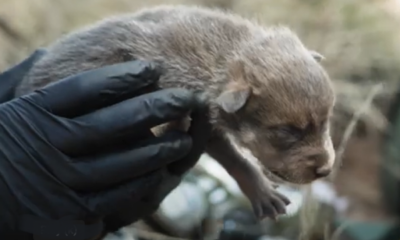
 Adventure1 month ago
Adventure1 month agoHowling in Cuckoo: How Mexican Wolves are Fostered
-

 Gear1 week ago
Gear1 week agoLet Freedom RING! Primary Arms’ Independence Day Category Sale Starts NOW
-

 Adventure3 days ago
Adventure3 days agoREACTION: Trump’s Make America Beautiful Again Agenda
-
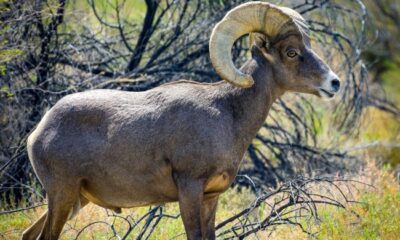
 Adventure2 weeks ago
Adventure2 weeks agoU.S. Bighorn Sheep Going Home to Canada
-
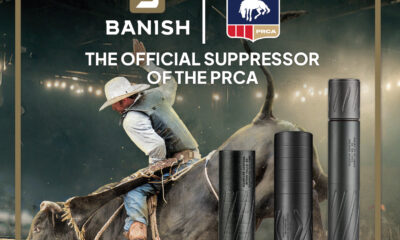
 Adventure2 months ago
Adventure2 months agoGoing Rodeo! BANISH Named the Professional Rodeo Cowboys’ Official Suppressor
-
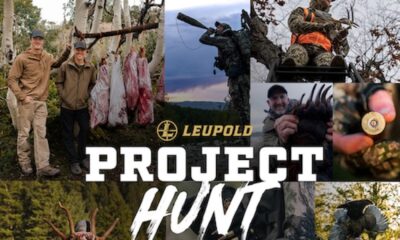
 Adventure1 month ago
Adventure1 month agoYour Dream Hunt Could Be a Movie & Leupold Can Help
